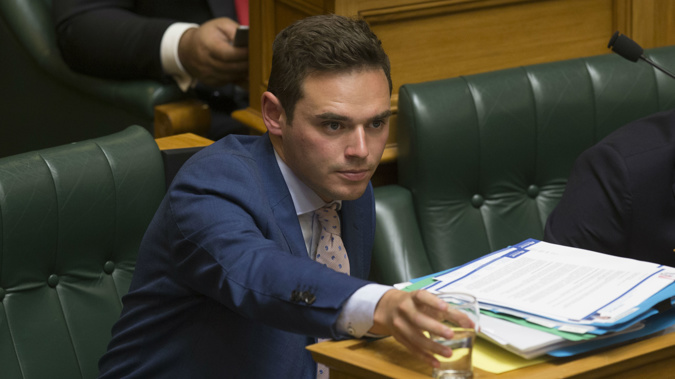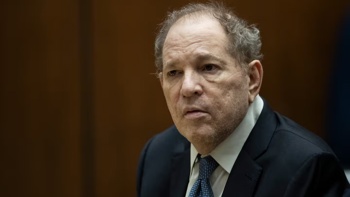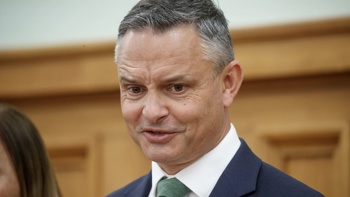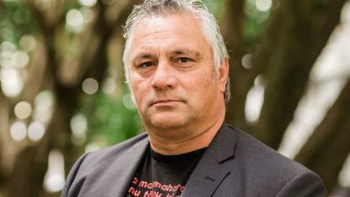
UPDATED 1.34pm: A National MP recorded a staff member by leaving a dictaphone running in her office - something Prime Minister Bill English was aware of, it has been claimed.
Newsroom this morning published an investigation into the employment dispute involving Clutha-Southland MP Todd Barclay and his former electorate agent Glenys Dickson, who had previously worked for English for 17 years.
Then Prime Minister John Key's leader's budget was used to help pay a settlement in order to forestall potential legal action.
Barclay's not saying whether taxpayer funds were used in the settlement.
"There would have been a package of some sort but I don't know specifically what it was."
Meanwhile, National Party President Peter Goodfellow is equally vague on the settlement's details.
"It's not for me to comment on the Leader's budget," he said.
Allegations by Dickson against Barclay led to a 10-month long police investigation. There were no charges after Barclay declined to talk to police, and they found insufficient evidence.
He said there's nothing new in the allegations than what's previously been out there.
"I have seen the allocations and I totally refute them."
Barclay is standing by his decision not to co-operate with the police investigation, saying he was acting on legal advice.
"The lawyer said to me, well you don't have to, it was never an obligation to make a statement so they asked me and on balance they said you don't have to, so I said okay, I won't," Barclay said.
Electorate agents are employed by Parliamentary Service but work closely with MPs and often act on an MP's behalf during a politician's absence.
Police documents previously released under the Official Information Act (OIA) showed there was a hope Barclay would provide any dictaphone voluntarily.
Today, Newsroom - which interviewed Dickson - reported that English knew about the secret recording, as did National Party board members and Parliamentary Service.
Former electorate chairman Stuart Davie also spoke to the website, and it quoted his police statement that states he exchanged text messages with English on February 21 last year.
They include one from English to Davie: "He left a dictaphone running that picked up all conversations in the office. Just the office end of phone conversations. The settlement was larger than normal because of the privacy breach."
Davie confronted Barclay at an AGM of the National Party Gore branch soon afterwards, where Barclay dismissed the accusation.
Andrew Little said Todd Barclay should have been made to front up to the police over the allegations.
The Labour leader said it's wrong on so many fronts.
"Senior members of the National Party in Parliament, including Bill English, seem to have been part of what looks like a cover up to protect him and keep the pressure off."
In March after the Herald revealed Barclay had declined to talk to police, English refused to comment, saying the matter had been resolved.
"It was an employment dispute, the police have had a look at it, he's been re-selected, and I think that's pretty much the end of it."
English, the former MP for Southland, would also not comment on his involvement in the investigation.
"I was the local MP, I knew the two people pretty well, but I'm not going to comment any further than that."
He was disappointed with the disagreements in his old electorate, but said it was "time for everyone to move on".
A spokeswoman for Parliamentary Service declined to answer questions, saying it did not comment on employment issues or police investigations.
The allegation led to division among the previously united Clutha-Southland National Party, which has a membership said to be 1500-strong. It led to Barclay facing - and surviving - a selection challenge from Simon Flood, a former Merrill Lynch banker.
Todd Barclay came in on a landslide
Todd Barclay entered Parliament as a National Party MP in 2014 with a landslide victory in one of the safest seats in the country.
Aged just 24, Barclay seemed certain to enjoy a Parliamentary career as long as he was willing to stand as the successor to Prime Minister Bill English in the Clutha-Southland electorate.
Barclay was born in Gore in 1990, the first of the country's MPs to be born in that decade, and then raised in Southland's Dipton.
The small town was also the seat of English's support for many years, before he moved to Wellington. The year of Barclay's birth was the same year English entered Parliament.
Barclay's parents Maree and Paul Barclay ran the local Four Square and post office before the family moved to Gore.
After finishing Gore High School, Barclay went to Victoria University in Wellington with a Bachelor of Commerce, majoring in commercial law.
His first stint at work gave him the opportunity to see how a country was run with work experience for then-Prime Minister John Key, English and Cabinet ministers Gerry Brownlee and Hekia Parata.
He left those roles for a job with the public relation firm SweeneyVesty before becoming corporate affairs manager for the cigarette company Philip Morris.
He told Fairfax after his election: "The company's a legal company selling a legal product. No smoker, or non-smoker in the country can say they're not aware of the consequences of smoking and that they didn't know where to go to seek assistance if they want to quit."
Entering Parliament, Barclay took on the role of deputy chair of the law and order select committee.
He also created controversy following selection with a casual dig at Campbell Live on social media after it was announced the show was under review. He later deleted his comment: "No surprises that it's only Labour Party MPs scrambling to keep Campbell Live running... #goodjobmikehosking."
But the upset he caused Campbell Live supporters was nothing compared to that which beset the 1500-strong membership of the National Party in his electorate when it emerged police were investigating claims he had recorded staff working in his office.
First staff member Glenys Dickson left the electorate office after working there for 18 years. Her departure was followed by the resignation of electorate chairman Stuart Davie. Other staff members also resigned.
Davie, who stepped down as electorate chairman a year ago because of differences with Barclay, resigned as chairman of his local branch, Waikaka, because of the divisions in the electorate.
"I backed away because I wanted to move on, there's other things more important in life.''
Davie emphasised it was time to 'move on' from the row, and he did not want to comment on Barclay's police file.
Over the 10 months police investigated, Barclay had claimed he had not been spoken to by police. It was eventually announced no charges would be laid because of insufficient evidence.
"After consideration of all relevant information and the Solicitor-General's prosecution guidelines, police has determined that there is insufficient evidence to prosecute," a statement from police said.
Barclay issued a statement saying: "I welcome this decision and pleased that we can move on. I'm looking forward to continuing to engage with National Party members about what my team and I have been working on over the last three years, and my plans to keep up the momentum for Clutha-Southland into 2017."
There were reports of concern over his "performance" when it came to being selected for the seat again. Heavy-hitters such as Cabinet minister Judith Collins were seen to be supporting the young MP, as was Jonathan Coleman.
There was also heavy online lobbying and sledging from the Whaleoil website, which has previously aligned itself with Collins.
Barclay won selection, beating former Merrill Lynch investment fund manager Simon Flood for the candidacy.
The leader's fund is allocated by taxpayer-funded Parliamentary Service to help meet "the operational needs of each party in fulfilling its parliamentary responsibilities". It must not be used for "anything that is not for a parliamentary purpose".
Use of the fund has had a controversial history. Former Prime Minister John Key backed away from a plan to pay a defamation settlement to "teapot tapes" cameraman Bradley Ambrose from the fund.
That came after backlash from opposition parties, and Parliamentary Service guidelines stating the fund could not be used for legal settlement. MPs can apply to use the fund for legal advice and representation, but not for damages.
In defending himself, Key said former Prime Minister Helen Clark had used public money to settle a defamation case, after she wrongly called a man convicted of manslaughter a murderer.
1990: Todd Barclay is born.
1992: The Barclay family moves to Dipton, the home of National Party stalwart and current Prime Minister Bill English.
2010: Barclay is attending Victoria University while doing work experience in English's office. He follows with paid work for John Key, Gerry Brownlee and Hekia Parata.
2014: Barclay wins the Clutha-Southland electorate, taking over from English.
2015: An ill-judged tweet praising the review of Campbell Live is deleted.
2016: Police investigate allegations Barclay secretly recorded staff in his office. No charges are laid.
2017: Barclay wins selection to stand for the electorate again.
Take your Radio, Podcasts and Music with you









